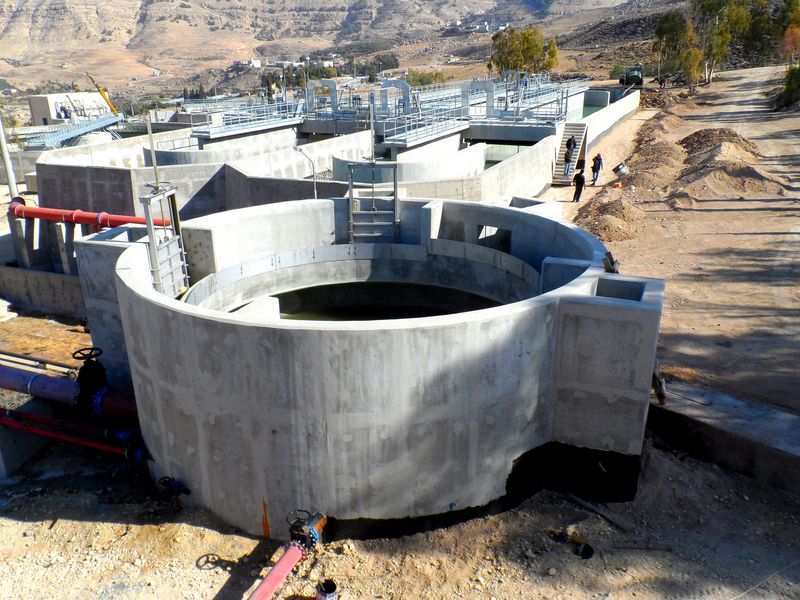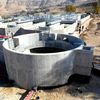Karak, Kofranjah:Upgrading and expansion of the Karak and Kofranjah Wastewater Treatment Plants
Disciplines
-
Hydraulic Engineering
-
Sanitation
Companies
Dorsch International Consultants
Client
Water Authority of Jordan (WAJ), Ministry of Water and Irrigation
Duration
From 2007 to 2021Project Activities
- Design and Tendering of Karak and Kofranjah Sewer Networks
- Design and Tendering of Karak and Kofranjah Wastewater Treatment Plants including several alternatives for extension of the activated sludge treatment
- Environmental and Social Impact Assessment (ESIA) for both Wastewater Treatment Plants
- Construction Supervision and support during operations for both Wastewater Treatment Plants
- Design and tendering of Kofranjah Effluent Conversion Pipeline including Environmental and Social Management plans
Contact
Dorsch International Consultants GmbH
München (Headquarters)
80687 München
Germany
Phone: +49 89 5797-0
Fax: +49 89 5797-800
E-Mail: info@dorsch.de
Description
The sewerage network and WWTP in Karak and Kofranjah have been operational since 1986. Prior to the implementation of the project both treatment plants’ wastewater flow was much higher than the design flow, resulting in insufficient treatment. The project includes the modernization and extension of two WWTPs, and the expansion and restoration of part of the sewer pipe network.
By 2010 the project aims to increase/ provide further access to adequate and equitable sanitation and hygiene, Improving water quality, wastewater treatment and safe reuse, and reducing illness and deaths due to lack of proper sanitation. The Project resulted in the following beneficiaries with new sewer system connections:
- Karak (urban): 20,200
- Karak catchment area (rural): 27,100
- Kofranjah (urban): 24,300
- Kofranjah catchment area (rural): 37,700
Moreover, since the project enhances water quality, reduces pollution and significantly increases recycling and safe reuse, it will have positive impacts on the farmers downstream which indirectly promotes sustainable agriculture. Upgrading and expanding the wastewater treatment plants ensures sustainable and efficient operations and greater adoption of clean and environmentally sound technologies, which in turn reduces CO2 emissions contributing to combating climate change.
The average wastewater flow in 2035 for Al Karak and Kofranja WWTP is expected to be of 5,647 m³/d and 8,995 m³/d, respectively, where the wet weather flow was estimated at 940 m3/h and 1,450 m3/h in the same order. This corresponded to a population equivalent of 69,100 in Karak and 93,500 in Kofranja.

